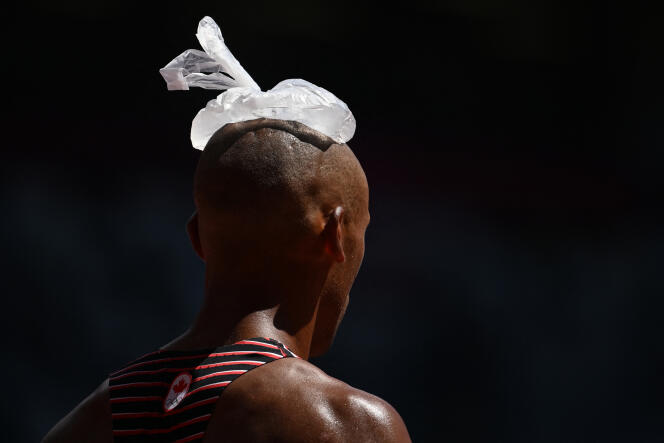


Will all the athletes at the Paris Olympic Games (OG) have to endure the same ordeal of a heatwave stiffling the atmosphere of the Paris region? While it's still too early to answer this question, the recent past is enough to make organizers sweat.
According to data from French weather service Météo-France, France has experienced 22 heatwaves since 2010 (only 2014 and 2021 were heatwave-free), more than during the 1947-2000 period. Over the last five years, France experienced two in 2019, two in 2020, three in 2022 and one in 2023. Some of these took place during the period when the Olympic Games will be running from July 26 to August 11. Notably, there was a heatwave from August 6 to 13, 2020, when the temperature in Paris approached 40°C, and a very long hot spell from July 31 to August 13, 2022.
"The Games will start at the time of the 'climatological peak,' on July 25. This is therefore the time of year when heat waves are most likely to be of the highest intensity over France," said Christophe Cassou, a climatologist at the French National Center for Scientific Research (CNRS). "But above all, they're taking place at a point in time when man-made warming, caused by the use of fossil fuels, is unequivocally promoting these extreme phenomena. The probability of a heatwave in 2024 is around four to five times greater than in 1924, when the last Olympic Games were held in Paris."
While this risk is becoming increasingly common for major sporting events – the Tokyo Olympics in 2021 were the hottest in history – it is obviously not a certainty. With only four months to go, and atmospheric movements being by definition chaotic, it's impossible to say whether these Olympics will take place under oceanic influence or anticyclonic high pressure.
Experts at Météo-France will have their first reliable data around three weeks before the start of the event, with forecasts becoming more accurate by the day. A heatwave can be forecast with a high degree of certainty around eight to 10 days ahead. "Conditions conducive to heatwaves most often result from atmospheric situations that cannot be anticipated several months ahead," explained the French weather institute.
While the athletes are still in the middle of their preparations, it's time to take a closer look at the potential risk of heatwaves. This is because global climate change – which has increased average temperatures by around 1.2°C compared to the pre-industrial era – is increasing the likelihood and intensity of heat waves, according to the Sixth Assessment Report of the Intergovernmental Panel on Climate Change.
You have 58.76% of this article left to read. The rest is for subscribers only.
